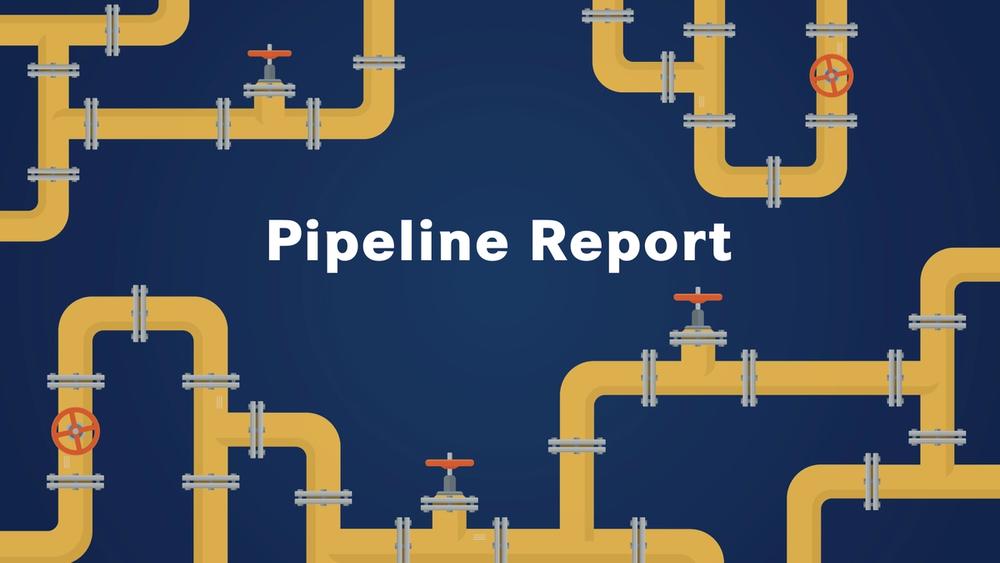
High-Dose MEDI5752 Induces Clinical Benefit in NSCLC at the Cost of Significant Toxicity

MEDI5752 plus chemotherapy doubled the duration of response and extended survival compared with pembrolizumab in patients with treatment-naïve nonsquamous non–small cell lung cancer.
MEDI5752 at a dose of 1500 mg plus chemotherapy doubled the duration of response (DOR) and extended survival compared with pembrolizumab (Keytruda) in patients with treatment-naïve nonsquamous non–small cell lung cancer (NSCLC), according to findings from a phase 1b/2 trial.
However, the regimen resulted in high rates of discontinuation and toxicity, leading investigators to explore a 750-mg dose of MEDI5752. The reduced dose of the PD-1/CTLA-4 bispecific monoclonal antibody demonstrated a similar overall response rate (ORR) and improved tolerability, but investigators need longer follow-up to assess progression-free survival (PFS), overall survival (OS), and DOR.
“The 1500-mg MEDI5752 plus chemotherapy showed improved antitumor activity—almost double the duration of response compared [with] pembrolizumab plus chemotherapy in the first-line setting, and the clinical benefit of [MEDI5752] in patients with PD-L1–negative [status] was consistent with the previous data,” said Myung-Ju Ahn, MD, PhD, a professor in the Department of Hematology and Oncology with Sumsung Medical Center at Sungkyunkwan University School of Medicine in Seoul, South Korea. She presented the data at the ESMO 2022 Congress.
At the 1500-mg dose, MEDI5752 plus chemotherapy (n = 20) induced an ORR of 50.0% vs 47.6% in patients assigned to pembrolizumab plus chemotherapy (n = 21). The median DOR was 20.5 months (95% CI, 4.1-not evaluable [NE]) in the MEDI5752 arm compared with 9.9 months (95% CI, 2.8-NE) with pembrolizumab.
The median PFS (15.1 vs 8.9 months) and OS (not reached vs 16.5 months) also favored the MEDI5752 arm.
Among patients who were PD-L1–negative (< 1% expression on tumor cells), ORR again favored the experimental arm, 55.6% (95% CI, 21.2%-86.3%) vs 30.0% (95% CI, 6.7%-65.2%). Similarly, the median PFS was superior with MEDI5752 vs pembrolizumab, 13.4 vs 9.0 months.
Investigators also assigned 64 patients to 750-mg MEDI5752 plus chemotherapy in a single-arm cohort. These data include the first 50 patients who had at least 8 weeks of follow-up. One patient was not evaluable for response.
In this group, the ORR was 40.8% and 49% of patients had at least 30% reduction in target lesions. Among PD-L1–negative patients (n = 36), the ORR was 44.4% and 55.6% of patients had at least 30% reduction in target lesions.
At the July 12, 2022, data cutoff, the median follow-up was 22.8 months in the experimental arm (range, 0.8-26.9) and 14.5 months (range, 1.6-27.9) with the control.
The median patient age in the MEDI5752 arm was 63.0 years (range, 50-86) and men made up 70% of the cohort. The median age in the pembrolizumab arm was 70.0 years (range 48-78) and 81% of the cohort was male. Approximately 60% of patients in both groups had an ECOG performance score of 0.
Sixteen patients (80.0%) in the experimental arm were current or former smokers compared with 90.5% in the control arm. All patients in the MEDI5752 arm and 90.5% in the pembrolizumab arm had stage IV disease.
Four patients (20.0%) in the MEDI5752 arm had brain metastases and 2 (10.0%) had liver metastases compared with 3 (14.3%) and 4 (19.0%), respectively, in the pembrolizumab arm.
Nine patients (45.0%) in the experimental group were PD-L1 negative compared with 10 (47.6%) with the control. Investigators identified 5 oncogenic drivers in the MEDI5752 arm and 2 in the pembrolizumab arm.
In the 750-mg cohort, the median age was 67.0 years (range, 36-83) and 72.0% of group were men. Thirty-eight patients (76.0%) had an ECOG status of 1 and 88% were current or former smokers. Ninety-six percent had stage IV disease, 16.0% had brain metastases, 16.0% had liver metastases, and 72.0% were PD-L1 negative. Investigators identified 2 oncogenic drivers in this group.
Patients received 1500 mg MEDI5752 plus 5 area under the curve (AUC) carboplatin and 500mg/m2 pemetrexed every 3 weeks for 4 cycles followed by maintenance therapy MEDI5752 or pembrolizumab every 3 weeks until unacceptable toxicity, progression, or withdraw of consent. Patients in the single-arm cohort received 750 MEDI5752 plus pemetrexed on the same schedule.
Fourteen patients (70.0%) in the 1500-mg group discontinued treatment compared with 6 (28.6%) in the pembrolizumab arm and 10 (20.0%) in the 750-mg group. Eighty percent of patients in the high-dose group experienced grade 3/4 treatment-related adverse events (TRAEs) compared with 61.9% in the pembrolizumab group and 50% in the low-dose group.
As expected, incidence of grade 3/4 TRAEs was much greater in the 1500-mg group compared with the 750-mg group. The most common grade 3/4 TRAEs were rash (10% vs 2%), alanine transaminase increased (30% vs 2%), aspartate transaminase increased (20% vs 2%), pneumonitis (5% vs 0%), and diarrhea (5% vs 2%).
“The emerging data of 750 mg plus chemotherapy showed a similar overall objective response with the improved tolerability less [and a lower] rate of discontinuation,” Ahn said. “This data suggests that MEDI5752 provides the potential options to improve the standard of care in first-line [for patients with] NSCLC, especially in those who have PD-L1–negative tumors.”
Invited discussant, Laura Mezquita, MD, PhD, a medical oncologist at Hospital Clínic de Barcelona in Spain, said it will be necessary to identify predictive biomarkers to determine which dose of MEDI5752, or possibly even a lower dose, is most appropriate for patients.
“This dose, 1500 mg, improves efficacy also in the PD-L1–negative population, however with very high toxicities and discontinuations,” she said. “Probably [the 750-mg dose] will be better, but we only have emerging activity …the safety profile is favorable, but longer follow-up is what is needed.”
Reference
Ahn MJ, Kim SW, Carcereny E, et al. MEDI5752 or pembrolizumab plus carboplatin/pemetrexed in treatment-naïve non-small-cell lung cancer: a phase 1b/2 trial. Presented at: European Society for Medical Oncology Congress 2022; September 9-13, 2022; Paris, France.






































